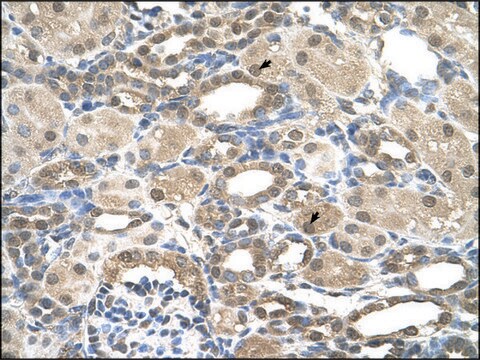GF35442727
Rhodium
foil, not light tested, 25x25mm, thickness 0.0005mm, permanent polyester support, 99.85%
Synonym(s):
Rhodium, RH000170
Sign Into View Organizational & Contract Pricing
All Photos(2)
About This Item
Empirical Formula (Hill Notation):
Rh
CAS Number:
Molecular Weight:
102.91
MDL number:
UNSPSC Code:
12141738
PubChem Substance ID:
NACRES:
NA.23
Recommended Products
Assay
99.85%
form
foil
manufacturer/tradename
Goodfellow 354-427-27
resistivity
4.33 μΩ-cm, 20°C
size × thickness
25X25 mm × 0.0005 mm
bp
3727 °C (lit.)
mp
1966 °C (lit.)
density
12.41 g/cm3 (lit.)
SMILES string
[Rh]
InChI
1S/Rh
InChI key
MHOVAHRLVXNVSD-UHFFFAOYSA-N
Looking for similar products? Visit Product Comparison Guide
General description
For updated SDS information please visit www.goodfellow.com.
Legal Information
Product of Goodfellow
Storage Class Code
13 - Non Combustible Solids
WGK
nwg
Flash Point(F)
Not applicable
Flash Point(C)
Not applicable
Certificates of Analysis (COA)
Search for Certificates of Analysis (COA) by entering the products Lot/Batch Number. Lot and Batch Numbers can be found on a product’s label following the words ‘Lot’ or ‘Batch’.
Already Own This Product?
Find documentation for the products that you have recently purchased in the Document Library.
Xing-Zhong Shu et al.
Chemical Society reviews, 41(23), 7698-7711 (2012-08-17)
Transition metal-catalyzed acyloxy migration of propargylic esters offers versatile entries to allene and vinyl carbene intermediates for various fascinating subsequent transformations. Most π-acidic metals (e.g. gold and platinum) are capable of facilitating these acyloxy migration events. However, very few of
Jeremy M Praetorius et al.
Dalton transactions (Cambridge, England : 2003), (31)(31), 4079-4094 (2008-08-09)
The organometallic chemistry of N-heterocyclic carbene complexes of the transition metals has received significant attention over the past ten years, especially with respect to complexes of Pd and Ru. The present Perspective highlights the chemistry of NHC complexes of another
Vladimir V Grushin
Accounts of chemical research, 43(1), 160-171 (2009-10-01)
Although springing from two established fields, organometallic chemistry and fluorine chemistry, organometallic fluorine chemistry is still in its early stages. However, developments in this area are expected to provide new tools for the synthesis of selectively fluorinated organic compounds that
Pablo Etayo et al.
Chemical Society reviews, 42(2), 728-754 (2012-11-08)
During the last few decades, rhodium-catalysed asymmetric hydrogenation of diverse alkene classes has emerged as a powerful synthetic tool in the pharmaceutical industry, contributing to the manufacturing of chiral drugs, recent drug candidates for clinical trials, and major synthetic precursors
Huw M L Davies et al.
Chemical Society reviews, 40(4), 1857-1869 (2011-03-02)
This tutorial review presents a description of the controlling elements of intermolecular C-H functionalization by means of C-H insertion by donor/acceptor rhodium carbenes. These rhodium carbenes, readily derived from the combination of diazo compounds with dirhodium(ii) catalysts, are sufficiently reactive
Our team of scientists has experience in all areas of research including Life Science, Material Science, Chemical Synthesis, Chromatography, Analytical and many others.
Contact Technical Service





